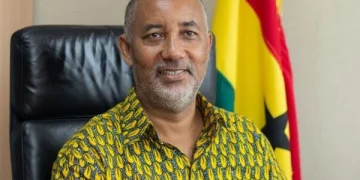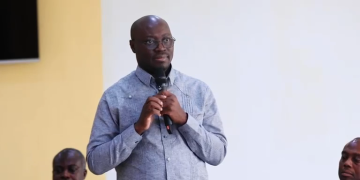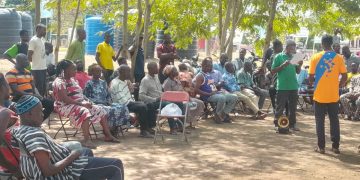Ghana’s ongoing challenges in recruiting, retaining, and effectively deploying nurses and midwives were central topics of discussion at the recent annual conference of the Ghana Registered Nurses and Midwives Association (GRNMA).
During the conference, government officials and leaders within the healthcare sector underscored the critical need to stabilize the nation’s health workforce.
Health Minister Kwabena Mintah Akandoh addressed attendees, indicating that there are currently more than 48,000 trained nurses and midwives who are unemployed, with an additional 35,000 graduates anticipated to enter the job market soon. He cautioned that, without substantial intervention, Ghana could face a backlog exceeding 120,000 unemployed nurses and midwives by 2028, which could have significant social and economic implications for the country.
Minister Akandoh detailed that the government has adopted a “managed migration strategy” designed to establish structured international pathways while preserving the integrity of the domestic health system. This approach aims to harmonize Ghana’s healthcare delivery needs with the career aspirations of nurses and midwives seeking opportunities abroad.
Furthermore, Mr. Akandoh confirmed that the current administration has completed the recruitment process inherited from its predecessor, resulting in 13,500 nurses and midwives being placed on the government payroll. He also assured those experiencing delays in salary payments that these issues will be addressed by the end of November 2025.
In a recent press conference, the Minister announced that negotiations for enhanced conditions of service have concluded, and the new framework will be implemented shortly. He also highlighted plans to strengthen public-private partnerships to accelerate the completion of stalled health facilities, extending an invitation to the Ghana Registered Nurses and Midwives Association (GRNMA) to explore opportunities for nurse- and midwife-led partnerships in managing available projects.
Mrs. Perpetual Ofori-Ampofo, President of GRNMA, welcomed the policy commitments but urged the government to address the persistent structural challenges faced by the nursing profession. She pointed out that Ghana’s nurse-to-population ratio is 1.99 per 1,000 people, emphasizing the significant disparities that exist between various regions, particularly in rural and urban areas.
Mrs. Ofori-Ampofo noted that over 80,000 young nurses and midwives are still seeking public-sector employment and questioned how long they would remain this state of uncertainty. She expressed concerns regarding the implications of migration, burnout, and inadequate support, suggesting that these factors reflect deeper systemic issues in financing, workload management, and professional development.
She also expressed her reservations regarding the recent 9% base salary increment, describing it as insufficient in light of rising living costs. Mrs. Ofori-Ampofo called upon the government to implement robust retention measures, including meaningful allowances and improved career incentives. Furthermore, she reiterated the need for swift action on rural posting incentives, which she deemed essential for ensuring equitable workforce distribution and enhancing service delivery in underserved communities.
Additionally, the GRNMA President outlined ongoing initiatives aimed at strengthening member welfare, including loan schemes, a health fund, disaster relief support, land and housing projects, and annual national awards. She emphasized that while these initiatives are designed to bolster morale and reduce attrition, they cannot substitute for comprehensive national reforms.
Ali Adolf, the Northern Regional Minister, commended the dedication of nurses and midwives, characterizing them as the “backbone” of Ghana’s health system. He advocated for stronger collaborations to improve training, service quality, and health outcomes across the nation.
The 19th Biennial National Delegates Conference focused on the theme, “Harnessing the Economic Power of Nursing and Midwifery Care for National Development.” This conference allowed stakeholders in the health sector to engage in discussions about various government policies. It concluded with a reaffirmation of commitments to coordinated action, urging stakeholders, including government officials and professional organizations, to collaborate in establishing a more resilient and equitable health workforce.
www.kumasimail.com/Hoenyefia Noah Nash


































































